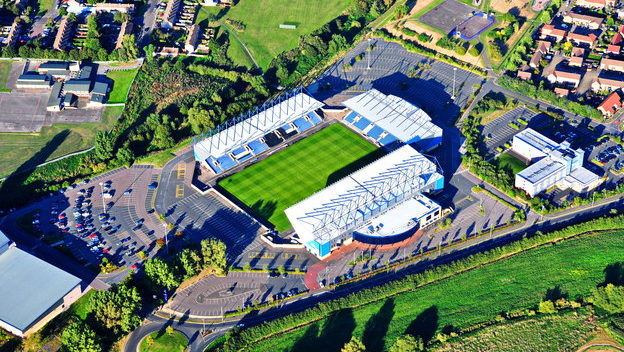Oxford United will host Manchester City at the Kassam Stadium in the third round of the Carabao Cup on the 25th of September. It promises to be a huge game for the town, with a bumper crowd expected and selection for television coverage almost an inevitability.
However, very few people at university seem to care about Oxford United. Although the Kassam Stadium and the chance to watch professional football is just a bus ride away, there does not appear to be an appetite for local football among students and even the thought of it seems so detached from university life.
Last season I went to my first Oxford United home match, against Rochdale. The price of the match ticket was reasonable at £14, the standard of football was high and the atmosphere created by the home fans was as good as I’ve seen on my travels, following my team Morecambe up and down the country. To top it all off, Oxford came away with a 2-1 win. There was nothing not to like. So why is it that there is no real taste for local football among students and what could make more people get behind the local side?
In my opinion, students don’t go and watch Oxford United because it is too easy to get your football fix elsewhere. With Monday Night Football, midweek cup competitions and Super Sunday, the concept of 3 o’clock on a Saturday is being lost. Going to watch a football match seems like an occasion, rather than a routine. It is this routine that is at the centre of enjoying lower league football. The familiarity of catching the same bus, having a pint in the same pub before the game and sitting in the same seats as two weeks before is the charm of it all – but the JCR TV will always be the cheaper and easier option. Another issue is the work required on the fan’s part, and with university life being so busy, this work is difficult to put in. The average student probably could not name any Oxford United players, couldn’t tell you how to get to the ground or who the manager of the team is. It does take time to learn these things and get this familiarity, but once you do, you can really feel a part of the club. Without such familiarity, you are only really going to watch the yellows against the reds or the blues. It isn’t the most exciting prospect.
So this is the issue, to get people to want to watch the football there is a need for familiarity, but this familiarity is only achieved by going to the football. It is an impenetrable cycle, like that meme about applying for a job when you have no experience. What’s more, the number of games it takes to achieve this familiarity is hard to reach given the busy nature of university life and the fact that most students aren’t actually in Oxford for that long. It seems like a cycle that cannot be broken – but this is where the magic comes in.
Televised coverage can fast track the process of familiarisation, and Oxford’s match with Man City will be a prime example. Sky Sports are very adept at putting across the story of a football club. Knowing that most of its audience won’t know much about Oxford United, they will pick out the players to keep a close eye on, tell anecdotes that endear us to the players and staff, and set out the story of the season so far, in order to make the game more interesting to the neutral. To diehard Oxford fans this may come across as an oversimplification of their club, but to casual supporters, and any student watching, this is the information that enables you to root for the team and create an affinity with them. Whether they win or lose, after this game Oxford United will become a lot more familiar to students and it will be a much more enticing prospect to go and watch them play.
I speak from experience. The second team I follow is Bristol City and last season they reached the semi-finals of the Carabao cup, knocking out Manchester United and playing two legs against Manchester City in the process. I was lucky enough to go to the second leg in Bristol with my friend from Bristol University. He brought some of his university mates along and you could see other similar groups of students in the crowd. The magnitude of the game visibly connected the students with the town and its football club. It was great to see the unifying power of football, not too dissimilar to this summer with the World Cup. I really think something of the sort can happen with Oxford and its students.
And so if you can, sit down and watch the game against Man City. Oxford are the underdogs, but with the magic of the cup who knows what might happen? You might even find yourself a second team.



